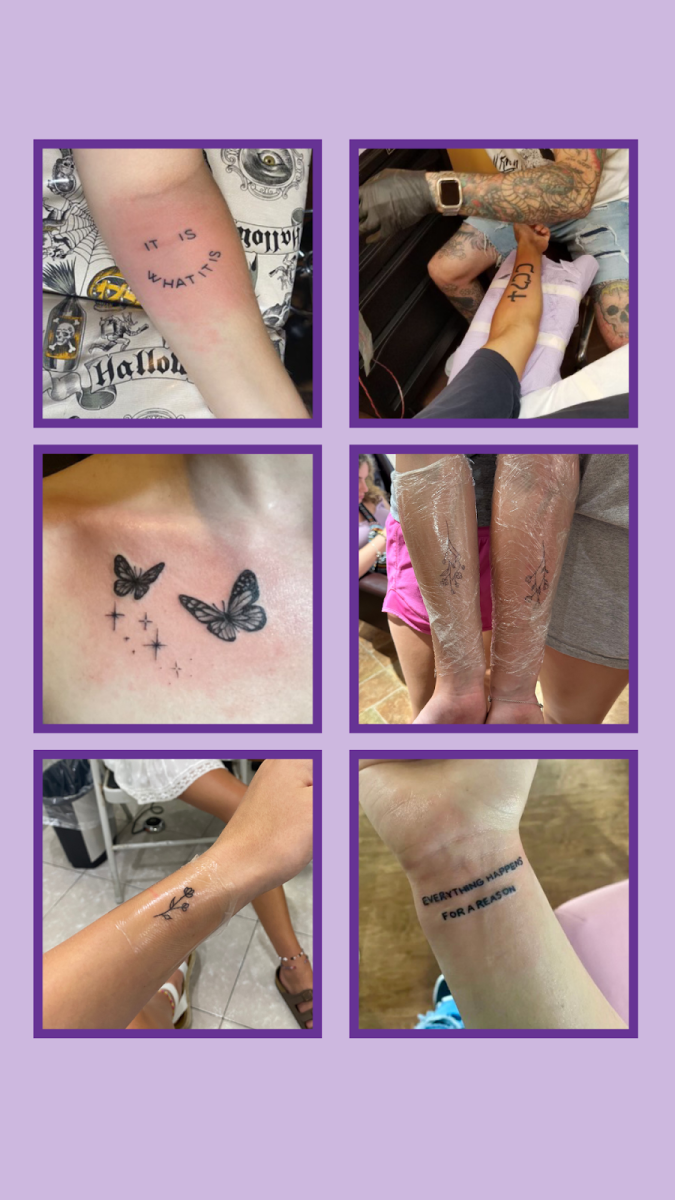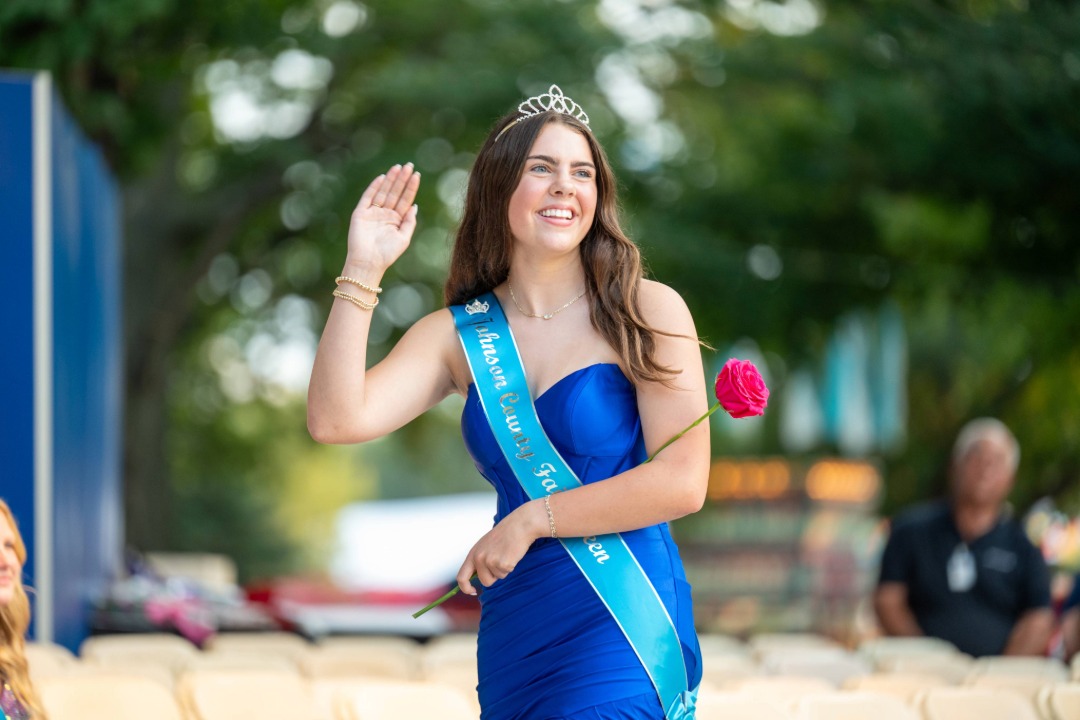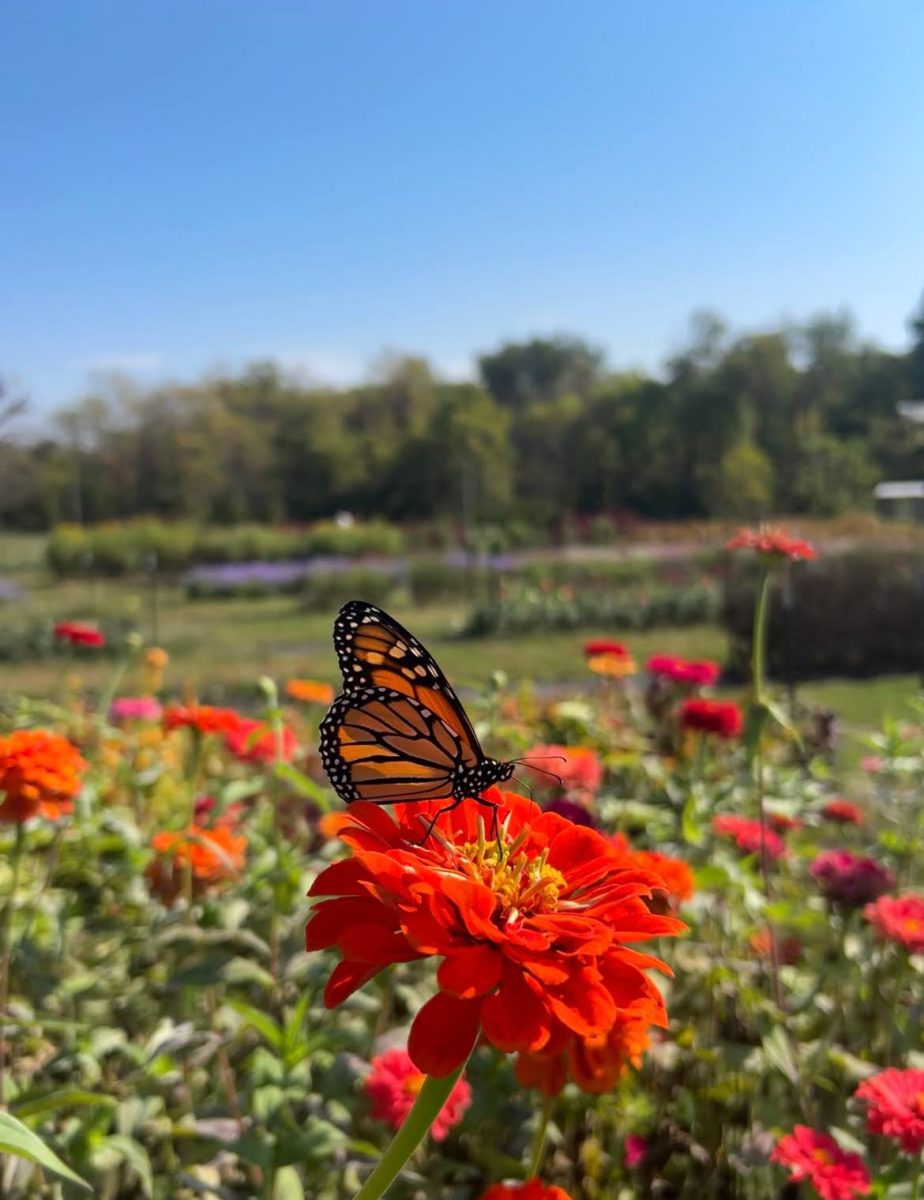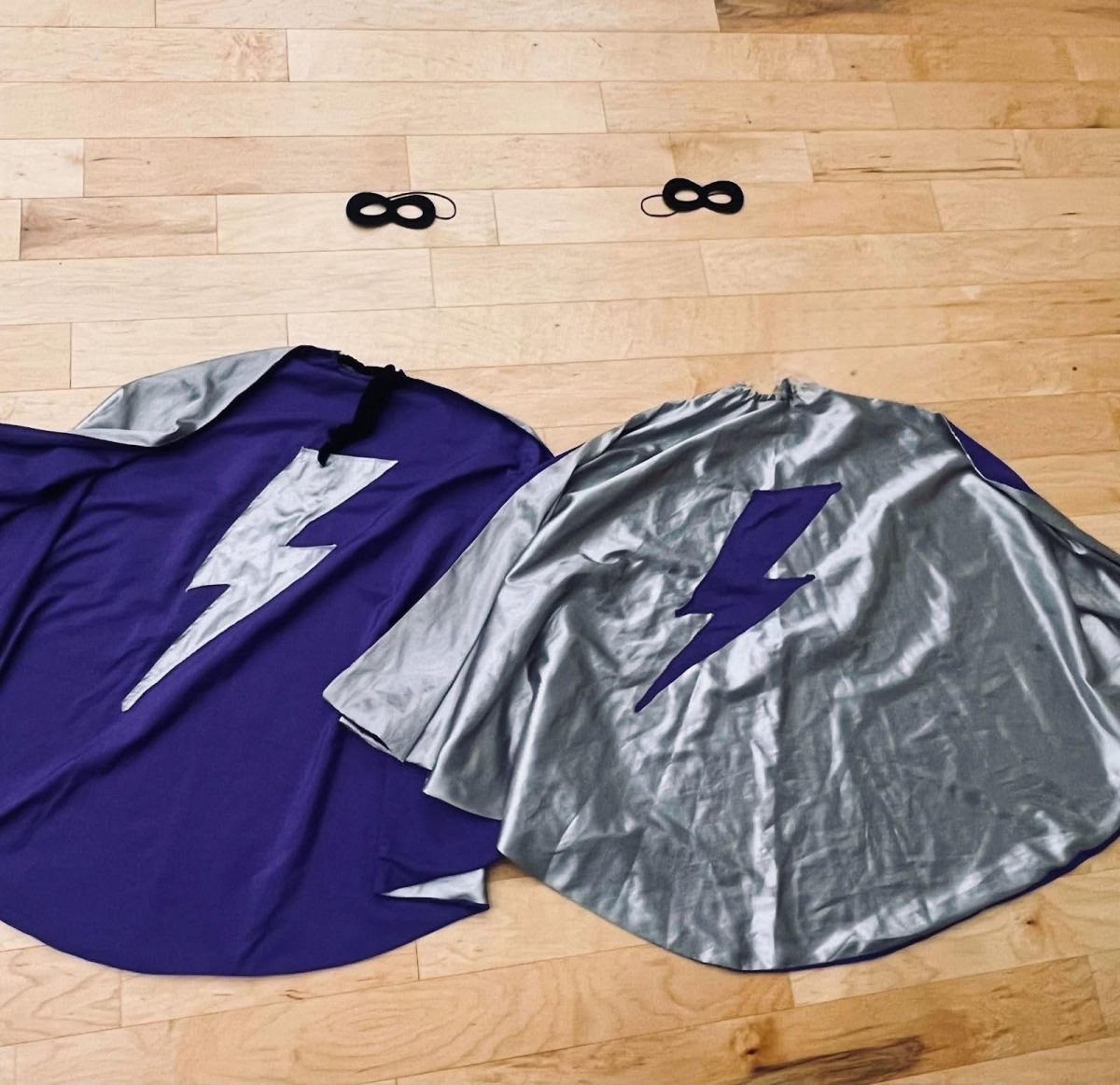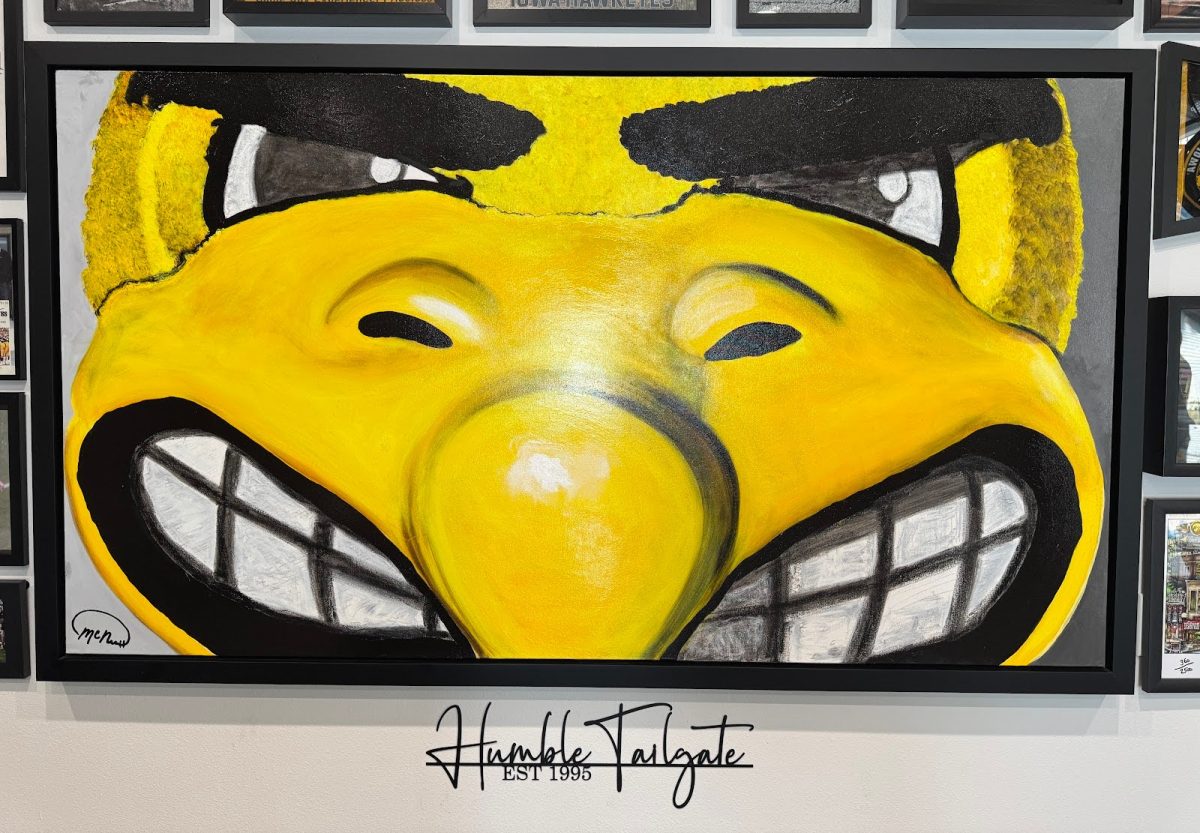Since the late 20th century, tattoos have become more mainstream among teenagers and young adults. Until the 1960s, tattoos were only popular in counterculture circles, but the social justice movements of the decade led to many young people using tattoos as an outlet for expressing their political stances.
Nowadays, tattoos are very common among younger generations. According to Johns Hopkins Medicine, 10-23 percent of adolescents (ages 10-19) have tattoos. Even further, when asked, over 50 percent of adolescents who don’t already have tattoos want to get one in the future.
Harmony Lane (she/her), Jenna Noel (she/her) and Marcus Anderson (he/him) are all seniors who have tattoos. But, each of them have distinctly different reasons for getting tattooed.
Lane has eight tattoos in total, five of which were done professionally. Some are fun, personality tattoos like a heart and Saturn, her favorite planet, while others represent obstacles she overcame.
“My wrist tattoo matches my mom’s tattoo; it says ‘everything happens for a reason’… My back tattoo represents my mental illness, borderline personality disorder,” explains Lane. “My butterflies represent surviving self-harm and my arm tattoo represents letting go of your trauma and not letting it hold you back.”
Lane views her tattoos as a representation of who she is as a person and plans to get more tattoos as she enters adulthood.
Similarly, Noel wants to continue getting fine-line tattoos, in the same style of the three she currently has. She made a spur-of-the-moment decision to get her first tattoo while on vacation with her family.
“I’ll probably regret some of my tattoos later in life, but I can always get them removed if I need to,” says Noel.
For now, Noel enjoys her tattoos and isn’t concerned about how she’ll feel about them in the future. She doesn’t believe tattoos need to have sentimental value, as getting tattoos is now quite common and there are methods available to remove tattoos if need be.
When asked about the belief that ‘young people will regret their tattoos’, Anderson counters this thought process.
“I feel like that’s a close-minded way of thinking,” says Anderson. “If you get something that has a lot of meaning to you, why not get it when you’re young?”
Anderson knew exactly what tattoo he wanted since he was 15 years old.
“My tattoo is a tribute to my cousin who passed away. He’s from Ethiopia and his first language is Amharic,” says Anderson. “My tattoo says ‘calm’ in Amharic.”
Many teenagers use tattoos as a form of personal expression, which can look different for everyone: meaningful quotes, artistic designs or symbols for personal values. As tattoos gain in popularity, so does teenagers’ ability to express themselves.




